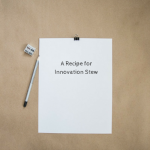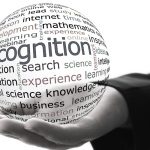
The purpose of this article is to share some additional perspectives on intuition themes that are fundamental components of individual thinking – and in particular, describe some of their limitations. Simply put, your intuition is your initial impressions of the world around you – before you ‘learn’ specific principles. They reflect both expectations (belief) and experience (perception).

I am often intimidated by the challenge of translating complicated subject matter into very few words and simplifying it to make it more understandable. Therefore, I have chosen a “recipe” metaphor for this article because I believe there is no single component to innovation. With the right ingredients and assembly of those ingredients (allowed to cook together if you will), the outcome is worth the effort.

My previous articles on this topic were heavily biased toward what can go wrong – essentially the pitfalls related to decision making involving cognitive bias, thinking errors, etc. Today, I am featuring a few ideas on how to facilitate deciding – making choices. This is an area I have written on extensively.

I am willing to bet that the majority of business people feel that all their ideas originate in the brain and that the behavior of their colleagues does so as well. Actually, this seems like a safe bet since the unofficial/unscientific survey I’ve conducted verifies this. What if that was not the case?

What could be the practical value (to the world of business) of an overview of the neuroscience of creativity/innovation? If nothing else – I hope to illustrate what a holistic phenomenon this is and encourage initiatives that could enhance cognition, creativity and innovation.
The Business Brain Model occupies a special niche, bringing together decades of experience across a very wide range of business and finance with an extraordinarily in-depth knowledge of the interface of neuroscience and psychology, including the latest developments in those fast-changing domains. This provides a singular insight into how these disciplines interact, and how recent...

The College of Business + Economics at the University of Guelph provides a unique transformational learning environment that encourages critical reflection, personal growth, community engagement and global awareness, and promotes comprehensive understanding of both traditional and emerging themes in management and economics. Its vision is to develop business leaders for a sustainable world. It is...

In addition to affecting how a brain ‘thinks’ mindfulness has also been shown to have actual physical effect on brain structure. For some orientation I refer you back to Your Brain: By the Numbers. The following reinforces the fact that reported improvements are not because people are just feeling better but because they are spending time relaxing.







